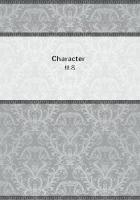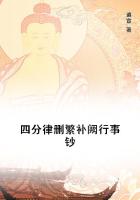Father Sergius lived as a recluse for another seven years.
At first he accepted much of what people brought him--tea, sugar, white bread, milk, clothing, and fire-wood. But as time went on he led a more and more austere life, refusing everything superfluous, and finally he accepted nothing but rye-bread once a week. Everything else that was brought to him he gave to the poor who came to him. He spent his entire time in his cell, in prayer or in conversation with callers, who became more and more numerous as time went on. Only three times a year did he go out to church, and when necessary he went out to fetch water and wood.
The episode with Makovkina had occurred after five years of his hermit life. That occurrence soon became generally known--her nocturnal visit, the change she underwent, and her entry into a convent. From that time Father Sergius's fame increased. More and more visitors came to see him, other monks settled down near his cell, and a church was erected there and also a hostelry.
His fame, as usual exaggerating his feats, spread ever more and more widely. People began to come to him from a distance, and began bringing invalids to him whom they declared he cured.
His first cure occurred in the eighth year of his life as a hermit. It was the healing of a fourteen-year-old boy, whose mother brought him to Father Sergius insisting that he should lay his hand on the child's head. It had never occurred to Father Sergius that he could cure the sick. He would have regarded such a thought as a great sin of pride; but the mother who brought the boy implored him insistently, falling at his feet and saying:
'Why do you, who heal others, refuse to help my son?' She besought him in Christ's name. When Father Sergius assured her that only God could heal the sick, she replied that she only wanted him to lay his hands on the boy and pray for him. Father Sergius refused and returned to his cell. But next day (it was in autumn and the nights were already cold) on going out for water he saw the same mother with her son, a pale boy of fourteen, and was met by the same petition.
He remembered the parable of the unjust judge, and though he had previously felt sure that he ought to refuse, he now began to hesitate and, having hesitated, took to prayer and prayed until a decision formed itself in his soul. This decision was, that he ought to accede to the woman's request and that her faith might save her son. As for himself, he would in this case be but an insignificant instrument chosen by God.
And going out to the mother he did what she asked--laid his hand on the boy's head and prayed.
The mother left with her son, and a month later the boy recovered, and the fame of the holy healing power of the starets Sergius (as they now called him) spread throughout the whole district. After that, not a week passed without sick people coming, riding or on foot, to Father Sergius; and having acceded to one petition he could not refuse others, and he laid his hands on many and prayed. Many recovered, and his fame spread more and more.
So seven years passed in the Monastery and thirteen in his hermit's cell. He now had the appearance of an old man: his beard was long and grey, but his hair, though thin, was still black and curly.
VFor some weeks Father Sergius had been living with one persistent thought: whether he was right in accepting the position in which he had not so much placed himself as been placed by the Archimandrite and the Abbot. That position had begun after the recovery of the fourteen-year-old boy. From that time, with each month, week, and day that passed, Sergius felt his own inner life wasting away and being replaced by external life. It was as if he had been turned inside out.
Sergius saw that he was a means of attracting visitors and contributions to the monastery, and that therefore the authorities arranged matters in such a way as to make as much use of him as possible. For instance, they rendered it impossible for him to do any manual work. He was supplied with everything he could want, and they only demanded of him that he should not refuse his blessing to those who came to seek it. For his convenience they appointed days when he would receive. They arranged a reception-room for men, and a place was railed in so that he should not be pushed over by the crowds of women visitors, and so that he could conveniently bless those who came.
They told him that people needed him, and that fulfilling Christ's law of love he could not refuse their demand to see him, and that to avoid them would be cruel. He could not but agree with this, but the more he gave himself up to such a life the more he felt that what was internal became external, and that the fount of living water within him dried up, and that what he did now was done more and more for men and less and less for God.
Whether he admonished people, or simply blessed them, or prayed for the sick, or advised people about their lives, or listened to expressions of gratitude from those he had helped by precepts, or alms, or healing (as they assured him)--he could not help being pleased at it, and could not be indifferent to the results of his activity and to the influence he exerted. He thought himself a shining light, and the more he felt this the more was he conscious of a weakening, a dying down of the divine light of truth that shone within him.
'In how far is what I do for God and in how far is it for men?'
That was the question that insistently tormented him and to which he was not so much unable to give himself an answer as unable to face the answer.
In the depth of his soul he felt that the devil had substituted an activity for men in place of his former activity for God. He felt this because, just as it had formerly been hard for him to be torn from his solitude so now that solitude itself was hard for him. He was oppressed and wearied by visitors, but at the bottom of his heart he was glad of their presence and glad of the praise they heaped upon him.













